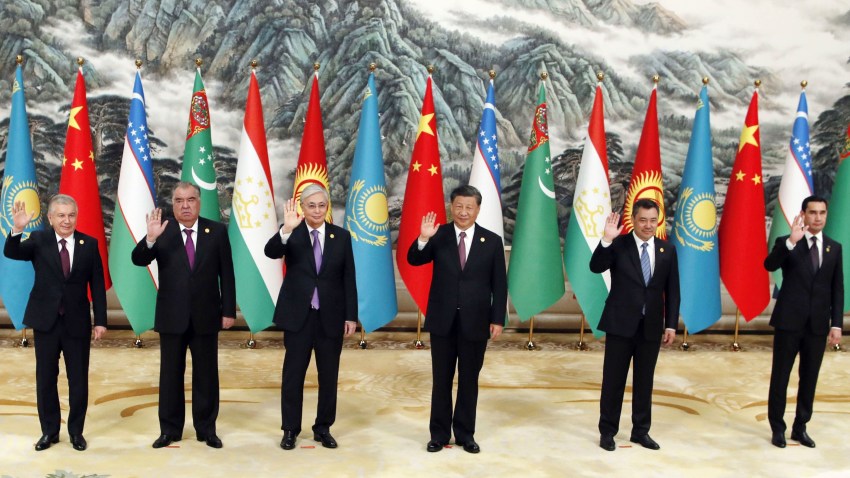In late May, Chinese President Xi Jinping hosted an in-person summit with the presidents of Uzbekistan, Kazakhstan, Kyrgyzstan, Turkmenistan and Tajikistan. At the gathering, which was the first of its kind for this format, the presidents signed numerous cooperation agreements, topped by the so-called Xian Declaration, after the city where they met. The summit was the latest demonstration of China’s steadily growing geo-economic role in Central Asia, marking what Xi called a “new era” in Beijing’s relations with the region.
Among the deals announced at the summit, the leaders agreed to improve communication and engagement among their countries on education, security, logistics, trade, humanitarian cooperation and even ecology. They also spoke out against interference by foreign powers in the internal affairs of other states, as well as against “attempts to discredit” any country’s “legitimate government” and provoke color revolutions.
The summit’s outcomes also reflected the emphasis Xi has placed on security in his tenure as Chinese president and chairman of the Communist Party. Beijing pledged to strengthen the capacity of law enforcement agencies and armies in the Central Asian countries, and promised to support their independent efforts to ensure regional security, combat terrorism and strengthen cyber security. In addition, Xi announced that Beijing was laying the groundwork for a regional anti-terrorist center in China to train the Central Asian states’ security forces.

